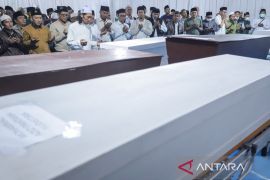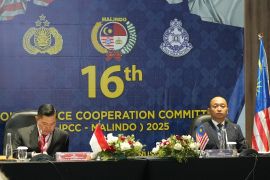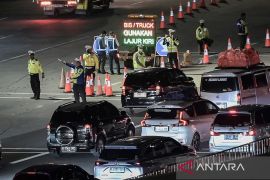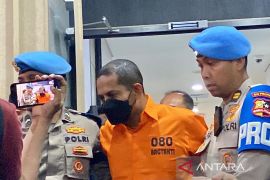"It was a major congestion. We extend our apology to the public for failing to meet their expectations," Brigadier General Agus Rianto said.Jakarta (ANTARA News) - The Indonesian Police have apologized to road users, who had to endure an up to 35-hour-long traffic jam while exiting the Pejagan-Brebes toll roads East Brebes gate during the post-fasting Lebaran Holidays, or Eid al-Fitr.
"It was a major congestion. We extend our apology to the public for failing to meet their expectations. We, the apparatus and the government, have tried to deliver our best services," Brigadier General Agus Rianto, spokesman of the National Police, noted at the Police Headquarters, here, Wednesday.
Rianto, however, denied a report claiming that more than 10 people had died due to the prolonged congestion.
"Regarding information that several people had died due to the congestion on the toll road, actually, there were no casualties," he clarified.
However, several homebound travelers were treated in Brebes for various conditions that later led to their deaths, he explained.
Earlier, a report stated that 12 road users had died due to the prolonged congestion.
Later, spokesman of the Health Ministry Oscar Primadi clarified that the deaths occurred not within one day but between July 3 and 5 across several locations.
There were varying reports on how long the traffic jam lasted, ranging from 20 to 35 hours. Some drivers claimed that the queues to pay the toll further worsened the situation.
The police spokesman also informed the press that the number of traffic accidents, fatalities, and crimes on the roads during the holiday season had decreased.
Indonesia, which has the largest Muslim population in the world, celebrated the post-fasting month of Lebaran on July 6.
Of the countrys population reaching over 250 million, more than 85 percent are Muslims.
Several Muslims usually spend the Islamic holidays with relatives in their hometowns, triggering a massive exodus from the cities.
The number of homebound travelers for Lebaran this year was estimated to reach over 17 million, including some four million using various means of land transportation.(*)
Editor: Heru Purwanto
Copyright © ANTARA 2016











